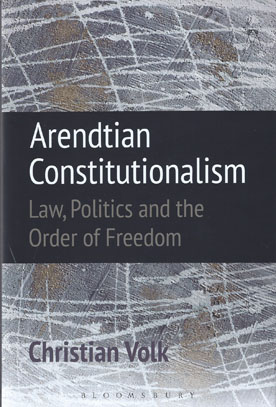
The meaning and function of law in Hannah Arendt’s work has never been the subject of a systematic reconstruction.
This book examines Arendt’s work and reconstructs her ideas through political, legal and constitutional theory, and shows that her engagement with law is continuous as well as crucial to an adequate understanding of her political thought.
The author argues that Arendt was very much concerned with the question of an adequate arrangement of law, politics and order – the so-called triad of constitutionalism – and considers suitable forms for the institutionalisation of conflict-ridden political action. By adopting this approach, the author suggests an alternative interpretation of Arendt’s thought, which sees Arendt as neither the advocate of ancient political forms, such as Aristotelian communitarianism, nor as a subscriber to the discourse-theoretical or agonal reading of her thought.
In the author’s view, Arendt is a thinker of political order who is concerned with the importance of a stable and free political order in which political struggle and dissent can freely occur.